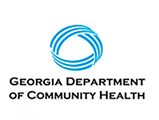💙 Living with Diabetes: Taking Control of Your Health:
💙 Living with Diabetes: Taking Control of Your Health
Diabetes Care for Seniors in Johns Creek, GA
Living with diabetes can feel overwhelming—especially for seniors and the families and caregivers who support them. At Divine Home Nursing, we provide compassionate diabetes care for seniors in Johns Creek, GA, helping older adults safely manage their health at home. 🌿
Whether you are an older adult living with diabetes, a family member caring for a loved one, or a caregiver seeking guidance, small and consistent steps can make a big difference in health, comfort, and independence. 😊
🩺 Understanding Diabetes in Seniors
Diabetes affects how the body turns food into energy. When food is eaten, it turns into glucose (sugar) that enters the bloodstream. Insulin helps move that sugar into cells for energy.
As we age, the body may not produce enough insulin or may not use it effectively. This can cause blood sugar levels to remain too high, increasing the risk of complications—especially for seniors with mobility challenges or other chronic conditions.
💡 Managing diabetes in older adults requires balance, routine, and support at home.
Types of Diabetes Common in Seniors
-
Type 1 Diabetes – Requires lifelong insulin management
-
Type 2 Diabetes – The most common type among adults and seniors
-
Gestational Diabetes – Important for family awareness and future risk
❤ Why Diabetes Management Matters for Older Adults
Uncontrolled diabetes can lead to serious health concerns, including:
-
❤ Heart disease and stroke
-
👁 Vision loss or eye disease
-
🦶 Foot problems, nerve damage, or infections
-
🩸 Kidney disease
-
⚠ Increased risk of falls and hospitalizations
With proper monitoring, medication support, and in-home care, many of these risks can be reduced.
🥗 Daily Diabetes Care at Home
1. Healthy Eating for Seniors 🍎
-
Balanced meals with vegetables, lean proteins, and whole grains
-
Regular meal times to avoid blood sugar drops
-
Portion control using smaller plates 🍽
-
Support from caregivers with meal planning
2. Safe Physical Activity 🚶♂️
-
Gentle movement such as walking or chair exercises
-
Improved circulation, balance, and strength
-
Encouragement and supervision from caregivers when needed
3. Medication Support 💊
-
Medications and insulin taken exactly as prescribed
-
Help with reminders and proper timing
-
Coordination with healthcare providers
4. Blood Sugar Monitoring 📊
-
Regular checks to prevent emergencies
-
Tracking trends over time
-
Assistance from family members or skilled nursing staff
5. Personal Care & Safety 💅
-
Daily foot checks for cuts or sores
-
Annual eye exams 👓
-
Monitoring blood pressure and kidney health
-
Smoking cessation 🚭
🧠 Emotional Support for Seniors & Caregivers
Living with diabetes can be emotionally exhausting. Seniors and caregivers alike benefit from:
-
💬 Open conversations about stress or concerns
-
👥 Support groups for patients and caregivers
-
🌈 Celebrating small wins and progress
Emotional health is just as important as physical health.
🤝 In-Home Diabetes Care Makes a Difference
Divine Home Nursing proudly provides diabetes care for seniors in Johns Creek, GA, serving families throughout North Fulton County, including Cumming, GA and surrounding communities.
Our in-home services help seniors remain safe, comfortable, and independent while giving families peace of mind.
🌟 Final Thoughts
Managing diabetes is a journey. Focus on progress—not perfection. With the right support system, seniors living with diabetes can enjoy a healthier, safer, and more confident life at home. 💪💙


